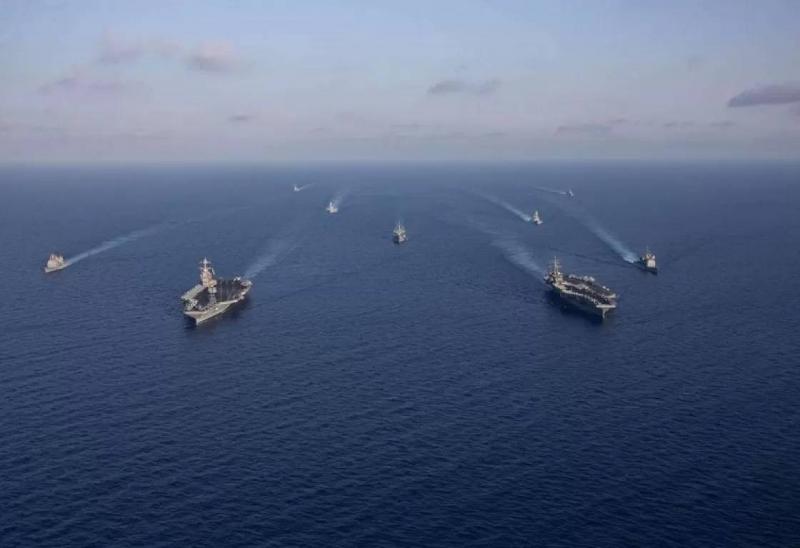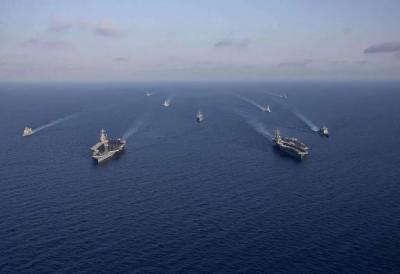It seems that the Houthis, who recently launched drone and missile attacks on both Israeli and American targets while also seizing and threatening ships in the Red Sea, have become a very important card for Iran, albeit a reckless and dangerous one. Tehran considers them the most suitable for expanding the war with Israel, as confirmed by analysts close to the Iranian government. They argue that the geographical location of the Houthis in Yemen places them in an ideal position to escalate fighting in the region, hoping to pressure Israel to end its war with Hamas in Gaza.
Two members affiliated with the Revolutionary Guard indicated that Iran's new plan involves increasing attacks by the factions on Israeli and American targets in the region, according to the New York Times. The maritime security aspect also includes Houthi attacks on more ships owned by Israel and the U.S. operating in the Red Sea, aiming to destabilize maritime security, global shipping, and energy supplies. The Revolutionary Guard members also clarified that factions in Iraq and Syria will also increase their attacks on U.S. military bases to cause more harm and damage.
They stated that the Revolutionary Guard is supplying the Houthis with intelligence to help identify Israeli-owned vessels in the Red Sea. A senior Western defense official, along with an Iranian familiar with the planning, revealed that Tehran has also established an intelligence site in the south of the country to relay information about Israeli ships to the Houthis.
Moreover, several analysts explained that the Houthis have become Iran's chosen proxies because they are close enough to the strategic waterways of the Red Sea to disrupt global shipping, yet far enough from Israel to make retaliatory strikes against them difficult. Additionally, unlike Hezbollah, the Houthis "are not indebted to local political dynamics, making them effectively unaccountable to anyone," according to analysts.
In this context, Nasser Imami, a political analyst close to the Iranian government, remarked that "the Houthis will pose a long-term threat to Israel more than Hamas or even Hezbollah." He added that "Iran considers them a key player and part of the collective strategy of the resistance axis."
Two senior Israeli defense officials confirmed that their intelligence indicated Iranian leaders are pushing regional militias to intensify their attacks against Israel. They stated that Israeli defense and intelligence circles are concerned about the recent Houthi attacks, viewing the threat as serious enough that military intelligence has established a unit dedicated to threats emerging from Yemen.
Both Israeli and American intelligence officials consider the Houthis a significant threat, potentially triggering a larger regional war due to miscalculations. It is noteworthy that Iranian officials have explicitly and repeatedly stated that they do not seek to escalate the conflict that erupted on October 7 between Israel and Hamas in Gaza.
It is often mentioned that Tehran denies controlling these groups, whether the Houthis in Yemen, Hezbollah in Lebanon, or other armed factions in Iraq and Syria. Recently, Iranian Foreign Minister Hossein Amir Abdollahian denied his country's control over the Houthis as well as other factions in the region. However, some senior Iranian officials and military advisors have repeatedly demonstrated in public speeches and social media posts that Tehran arms and supports these factions, including the Houthis.




